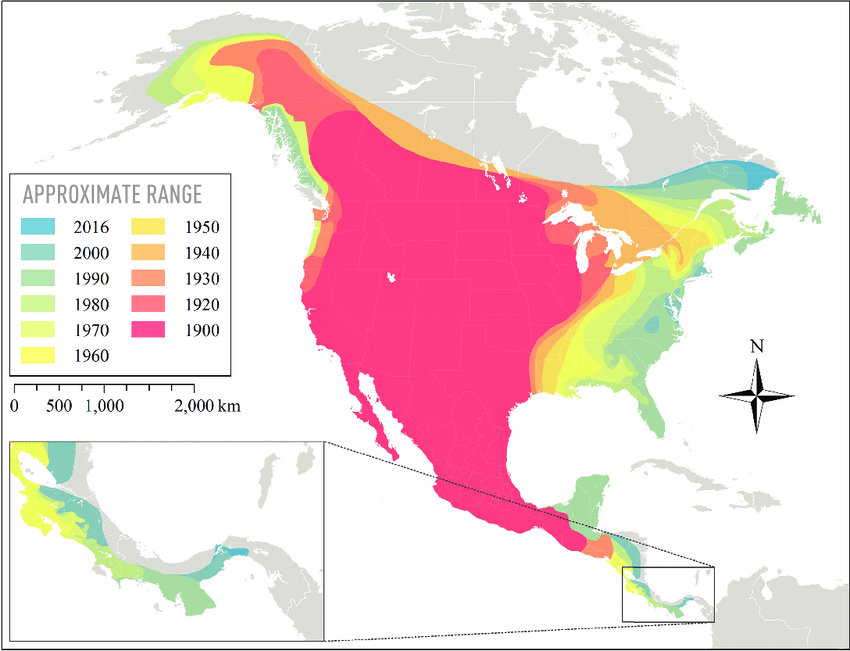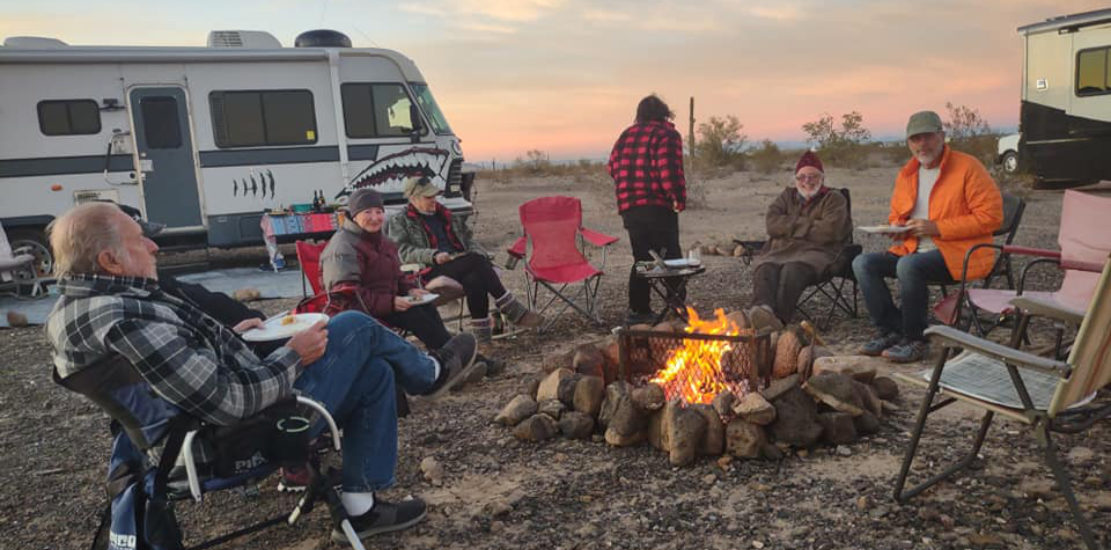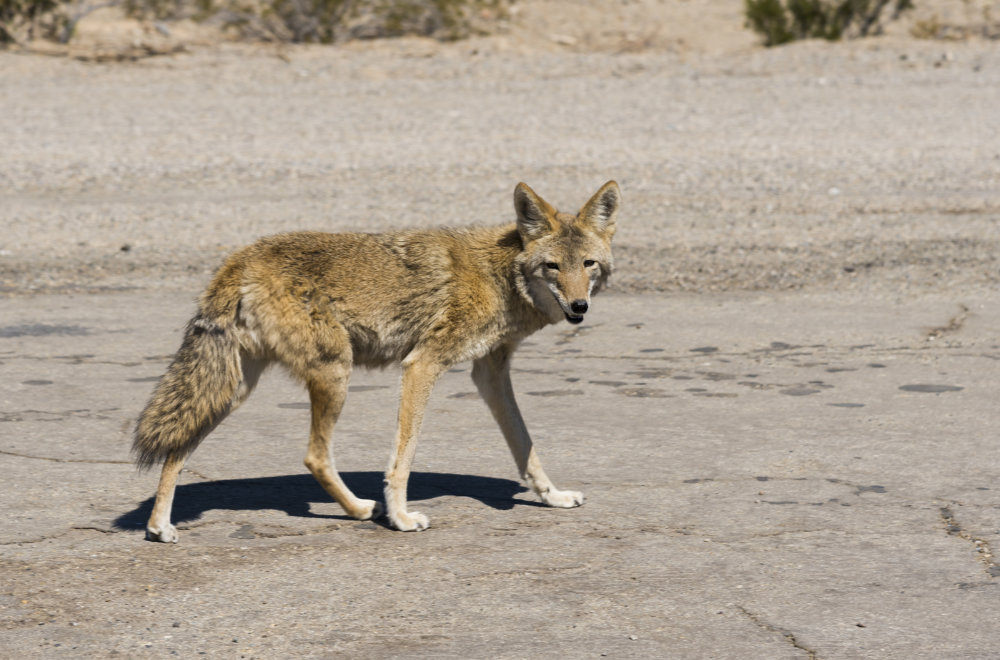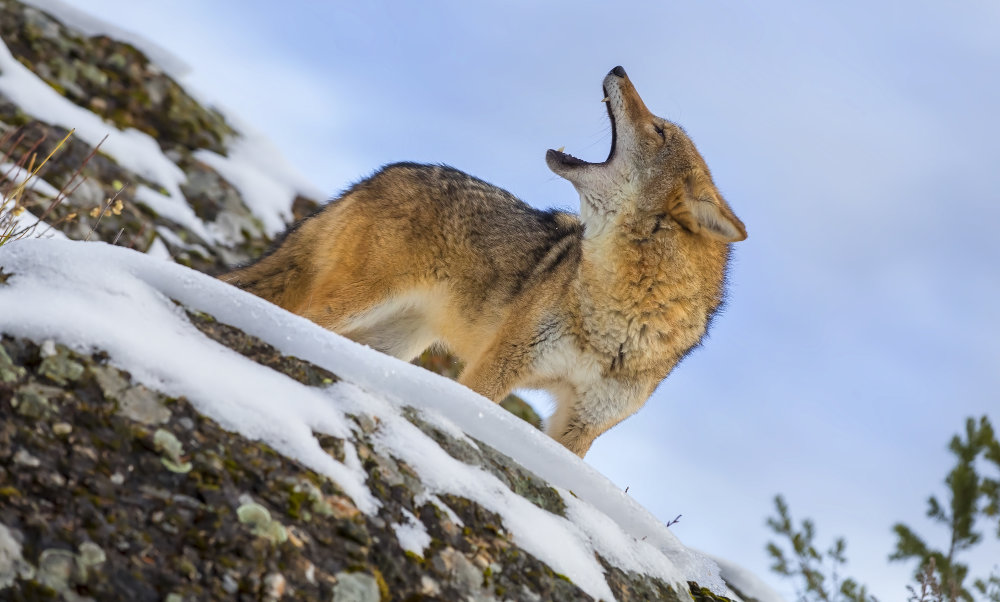I’VE ALWAYS HAD A FONDNESS FOR COYOTES. Perhaps because I like dogs. Perhaps because I sympathize with hapless Wile E. Coyote (really, the Roadrunner is a jerk).
I smile whenever I see coyotes or hear them yipping and howling. While camped at Fortuna Pond near Yuma one year, there was a pack living very nearby. Their nightly calls seemed right outside my van. It was beautiful music. Certainly more pleasant than the generator across the way.

When I visited a friend who was renting a space at aptly named Coyote Howls, in Why AZ, a lone coyote would commute through the campground each evening. Cool, calm, just going about its routine.

Since becoming a nomad in the heart of coyote territory (although that territory now includes nearly all of North and Central America) I’ve come to not only like coyotes, I also now identify with them. I’m not a desert rat, I’m a coyote. Maybe you are, too.
In his wonderful book The Animal Dialogues, Craig Childs notes, “About a third of all coyotes will be in packs, another third traveling in pairs, and the remaining third going solo.” That sounds like the nomad community to me.
One winter day in the San Juan Mountains of Colorado, Childs, on cross-country skis, followed a set of coyote tracks in the snow. He wrote:
More coyote tracks appear. Five more, eight, twelve. Coyote packs are more loosely arranged than those of wolves. They are more like get-togethers with friends, neighbors, and relatives than they are alpha-male bureaucracies. I like that about coyotes, their casual sovereignty.

“Casual sovereignty.” That’s us — self-directed individuals occasionally gathering with our loosely connected tribe(s), where pecking order is unimportant. In fact many of us intentionally fled status-driven, exploitation-based, hierarchical society.

Coyotes are adaptors, finding ways to live in conditions from the frozen north to the southern tropics, from grasslands to woodlands to wastelands to urban and suburban sprawl. Like us humans.
Like coyotes, we nomads are misunderstood, feared and even hated by many people. Neither we nor the coyotes pose any actual harm, but they want us gone anyway — perhaps because of our lack of dependence upon the social and cultural systems they value.
So the next time you watch the setting sun, when you’re feeling particularly free and wild, let out some hearty yips and howls in gratitude for the life you’re able to live. Then listen to see who answers. It might be me.


I can identify wholeheartedly!
Thank you, looking for that book now.
Fantastic article Al. “ but they want us gone anyway — perhaps because of our lack of dependence upon the social and cultural systems they value.”…. Exactly. May we all howl in gratitude ?
Can’t wait to read that book. Thanks for such a charming expression of identity with them and photos.
Never thought about it like that. Hopefully if and when I become a nomad I’ll then be a coyote too.